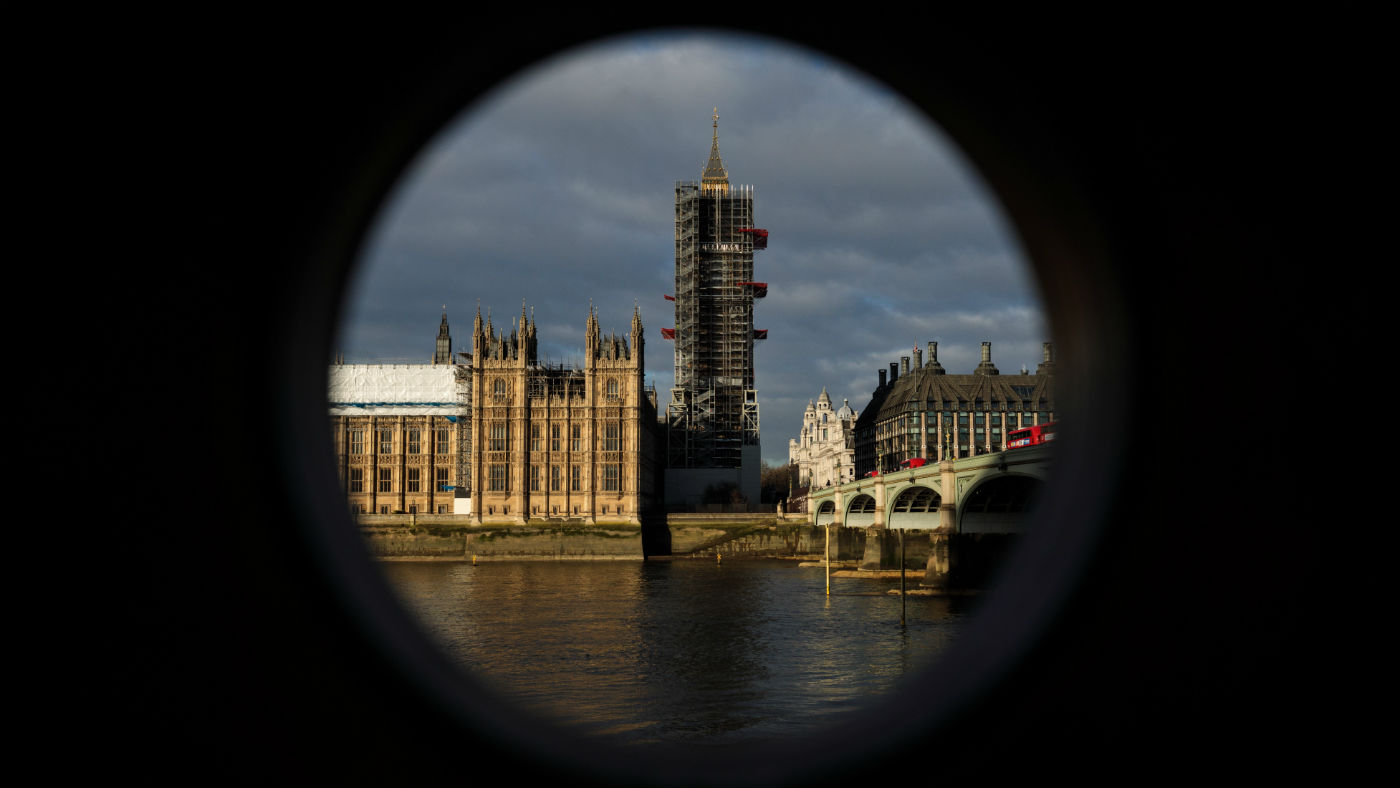Why everyone is talking about the MPs’ expenses scandal (again)
A decade has passed since the revelations rocked Westminster - but has anything changed?

A free daily email with the biggest news stories of the day – and the best features from TheWeek.com
You are now subscribed
Your newsletter sign-up was successful
MPs’ expenses are back in the news, ten years on from the political earthquake that rocked Westminster.
The row has had far-reaching and unexpected consequences that continue to shape Britain.
Yet “the body set up to ensure greater transparency in the wake of the scandal has been accused of trying to prevent openness, rather than ensuring it”, according to The Daily Telegraph, which first investigated the expenses claims. And the rules are being “routinely broken by politicians who still show a ‘lax and casual’ attitude to the way they account for taxpayers’ money”, the newspaper adds.
The Week
Escape your echo chamber. Get the facts behind the news, plus analysis from multiple perspectives.

Sign up for The Week's Free Newsletters
From our morning news briefing to a weekly Good News Newsletter, get the best of The Week delivered directly to your inbox.
From our morning news briefing to a weekly Good News Newsletter, get the best of The Week delivered directly to your inbox.
What happened?
In May 2009 an explosive leak to The Daily Telegraph blew open the previously secretive world of MPs’ expenses. A year before, the courts had ruled that the expenses claims of parliamentarians and peers should be made public, but until a CD containing precise details was handed over the House of Commons had only released heavily redacted versions.
The claims, which ranged from the infamous ornamental duck house to criminal misdemeanors, shook Westminster to its core and led to the resignation of several government ministers and then-speaker Michael Martin, the imprisonment of two peers and five MPs, and the retirement of dozens more.
In all, 392 former and current MPs were ordered to repay £1.3m in misclaimed expenses.
A free daily email with the biggest news stories of the day – and the best features from TheWeek.com
“The scandal has had consequences that few expected” says the New Statesman. “Trust in politics had already been damaged by the invasion of Iraq and the financial crash of 2008. Here was evidence that the political system was not only corrupt, but seemingly rigged against ordinary people.
“The result has been a deep and enduring distrust of politicians and public institutions.”
What was the response?
Having topped the news agenda for the best part of the year, the scandal led public faith in Britain’s political system to plummet to record lows.
New measures were introduced to ensure MPs were held more accountable. The controversial Additional Costs Allowance, in which MPs with seats outside inner London were allowed to claim up to £24,000 a year for a second home, was reduced, while taxpayers were no longer expected to foot the bill for MPs’ mortgages.
But the perception that MPs were out to game the system by tilting the rules in their favour persisted.
In 2013, there was fresh outcry after it emerged that almost 150 MPs had claimed expenses associated with their children’s accommodation and travel. Between 2010, when the expenses rules were reformed, and 2013, MPs claimed almost £140,000 for their children's travel. They were also eligible to claim up to £2,425 for each child who “routinely resided” with them, and more than 90 MPs are believed to have claimed more than the accommodation cap of £20,000 a year.
The Independent Parliamentary Standards Authority (Ipsa), which monitors MPs’ pay and expenses, said the arrangements were within the rules, yet the revelation prompted accusations of hypocrisy and claims that MPs enjoyed benefits not available to ordinary workers.
In April 2019, yet another expenses scandal broke, after the Daily Mirror revealed that 160 MPs and peers had raked in more than £42m in profits selling properties that public money had helped fund.
The Canary reports “politicians claimed the taxpayer funding as part of the old expenses system but cashed in on the homes years later”.
The investigation found MPs made an average profit of £255,000 on selling their taxpayer-subsidised homes. These included potential Tory leadership frontrunner Michael Gove, who made £870,000 on two homes, and chairman of the influential backbench 1922 Committee, Sir Graham Brady.
“Under parliamentary rules they are entitled to keep the money,” said the Mirror, “but with trust in politicians still low after the expenses scandal and the ongoing Brexit shambles, critics insist if MPs want to regain trust they should hand the money to the Treasury.”
What next?
On the tenth anniversary of the scandal, the Telegraph this week claims that Ipsa “tried to prevent the public being told that 377 MPs, including nine Cabinet ministers and Jeremy Corbyn, have had their official credit cards suspended for breaking the rules on expenses”.
Of the 1,114 cases where cards were suspended, 987 relate to the failure to submit receipts or answer Ipsa queries on time, and 125 to failure to repay money spent that was ineligible under the rules. One minister admitted using her parliamentary credit card to pay for an Amazon Prime subscription.
The Telegraph says Ipsa was unwilling to reveal this information under the Freedom of Information Act, before a former High Court judge finally ordered its release.
Martin Bell, an anti-sleaze campaigner and former independent MP for Tatton, suggested there was still a “sense of entitlement” among politicians.
The original scandal “changed our perception of MPs”, he told talkRADIO. “They were formerly held with a measure of respect and that all dissolved with the scandal. I honestly don’t think they have really recovered it.”